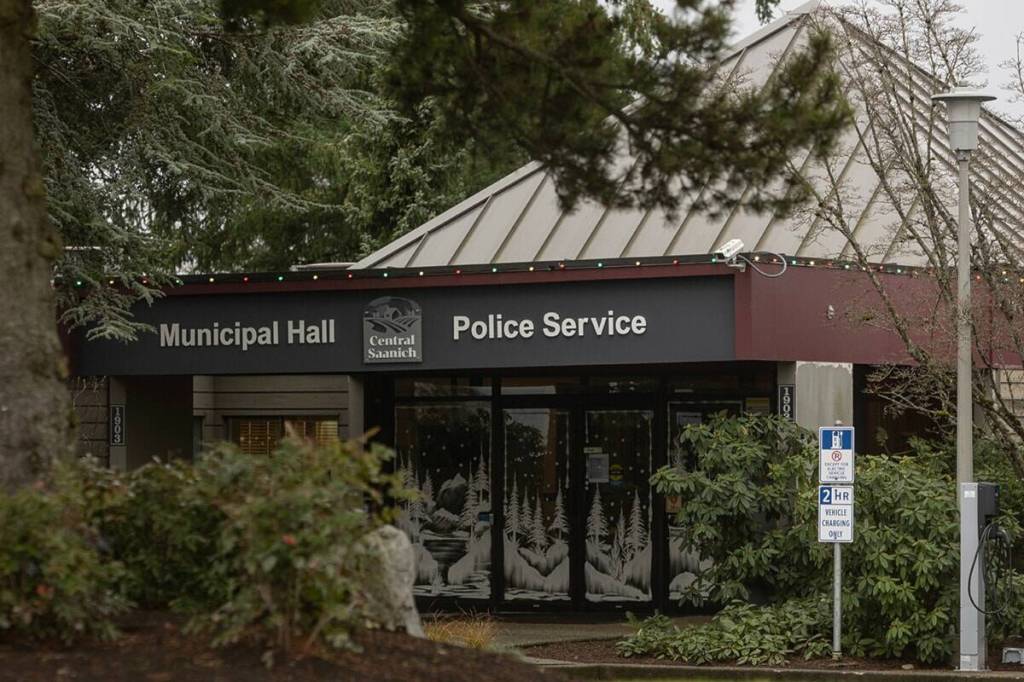Technology
Central Saanich Council Rejects AI Proposal for New Municipal Hall

The Central Saanich Council recently voted against a motion proposed by Coun. Zeb King, which sought to explore how artificial intelligence (AI), automation, and digital service delivery could influence the future necessity for a new municipal hall. While the vote concluded without action, the dialogue surrounding the potential integration of technology in municipal planning remains critical, according to King.
Large public buildings are designed to endure for several decades, often outlasting the terms of elected officials. If a new municipal hall is constructed, it could serve the community for an estimated 40 to 60 years. This long-term perspective raises essential questions beyond immediate needs or projections for the next twenty years; it prompts a consideration of how work itself will evolve within the lifespan of such a facility.
Over the past twenty years, the nature of municipal work has undergone significant transformation. Tasks that once required substantial manpower, such as managing paper agendas, have transitioned to digital formats, and many inquiries now occur online. The advent of AI technology is anticipated to further streamline operations, potentially automating tasks such as writing reports, scheduling meetings, and responding to routine inquiries. Additionally, the trend of remote and hybrid work arrangements is likely to continue growing.
Given these advancements, King questions whether investing tens of millions of taxpayer dollars into a larger, more complex municipal hall is prudent. Instead, he suggests evaluating whether the current facility could be upgraded and adapted through smart use of technology. If a new building is deemed necessary, he advocates for a design that is smaller, more flexible, and aligned with community needs—akin to a civic hub or library campus rather than a traditional office tower.
This discussion is not an attempt to halt progress; rather, it aims to ensure that future developments align with how residents will work and interact in the coming decades. Future-proofing municipal infrastructure involves more than anticipating population growth; it requires readiness for technological advancements and a conscious effort to prevent costly overbuilds.
Concerns voiced by residents regarding the proposed municipal hall reflect reasonable inquiries into the project’s viability. King shares these concerns and emphasizes the importance of incorporating an AI perspective into the ongoing discussion. He believes this approach will help ensure that any future investment genuinely meets the community’s needs throughout the building’s entire lifespan, rather than merely addressing current demands.
The decision to construct a new municipal hall ultimately belongs to the public, as much as it does to the council. King encourages a thorough examination of the future of work and technology before finalizing decisions about the kind of facility that will best serve the community.
-

 Education3 months ago
Education3 months agoBrandon University’s Failed $5 Million Project Sparks Oversight Review
-

 Science4 months ago
Science4 months agoMicrosoft Confirms U.S. Law Overrules Canadian Data Sovereignty
-

 Lifestyle3 months ago
Lifestyle3 months agoWinnipeg Celebrates Culinary Creativity During Le Burger Week 2025
-

 Health4 months ago
Health4 months agoMontreal’s Groupe Marcelle Leads Canadian Cosmetic Industry Growth
-

 Science4 months ago
Science4 months agoTech Innovator Amandipp Singh Transforms Hiring for Disabled
-

 Technology3 months ago
Technology3 months agoDragon Ball: Sparking! Zero Launching on Switch and Switch 2 This November
-

 Education3 months ago
Education3 months agoRed River College Launches New Programs to Address Industry Needs
-

 Technology4 months ago
Technology4 months agoGoogle Pixel 10 Pro Fold Specs Unveiled Ahead of Launch
-

 Business3 months ago
Business3 months agoRocket Lab Reports Strong Q2 2025 Revenue Growth and Future Plans
-

 Technology2 months ago
Technology2 months agoDiscord Faces Serious Security Breach Affecting Millions
-

 Education3 months ago
Education3 months agoAlberta Teachers’ Strike: Potential Impacts on Students and Families
-

 Science3 months ago
Science3 months agoChina’s Wukong Spacesuit Sets New Standard for AI in Space
-

 Education3 months ago
Education3 months agoNew SĆIȺNEW̱ SṮEȽIṮḴEȽ Elementary Opens in Langford for 2025/2026 Year
-

 Technology4 months ago
Technology4 months agoWorld of Warcraft Players Buzz Over 19-Quest Bee Challenge
-

 Business4 months ago
Business4 months agoNew Estimates Reveal ChatGPT-5 Energy Use Could Soar
-

 Business3 months ago
Business3 months agoDawson City Residents Rally Around Buy Canadian Movement
-

 Technology2 months ago
Technology2 months agoHuawei MatePad 12X Redefines Tablet Experience for Professionals
-

 Business3 months ago
Business3 months agoBNA Brewing to Open New Bowling Alley in Downtown Penticton
-

 Technology4 months ago
Technology4 months agoFuture Entertainment Launches DDoD with Gameplay Trailer Showcase
-

 Technology4 months ago
Technology4 months agoGlobal Launch of Ragnarok M: Classic Set for September 3, 2025
-

 Technology4 months ago
Technology4 months agoInnovative 140W GaN Travel Adapter Combines Power and Convenience
-

 Science4 months ago
Science4 months agoXi Labs Innovates with New AI Operating System Set for 2025 Launch
-

 Technology4 months ago
Technology4 months agoNew IDR01 Smart Ring Offers Advanced Sports Tracking for $169
-

 Top Stories2 months ago
Top Stories2 months agoBlue Jays Shift José Berríos to Bullpen Ahead of Playoffs










